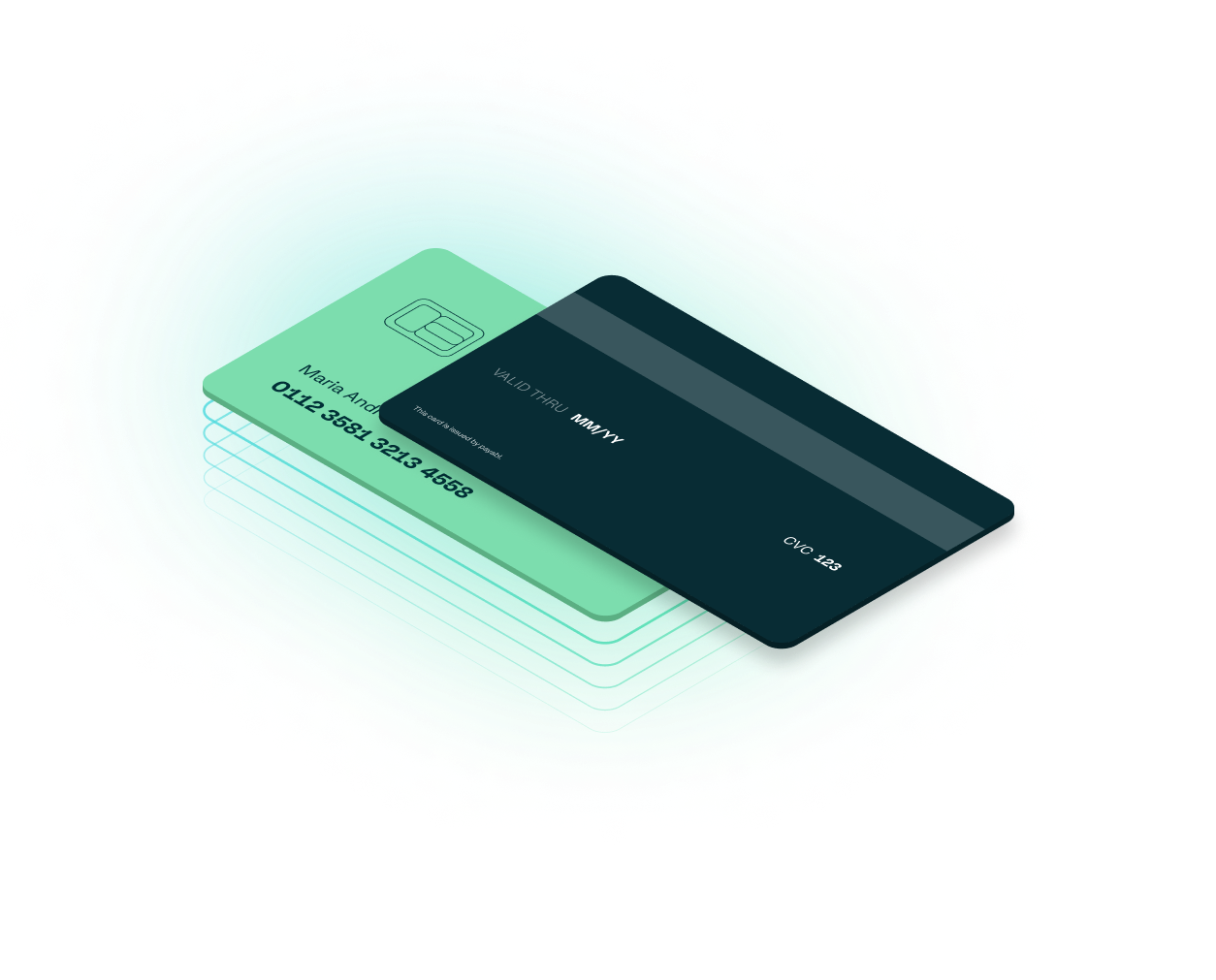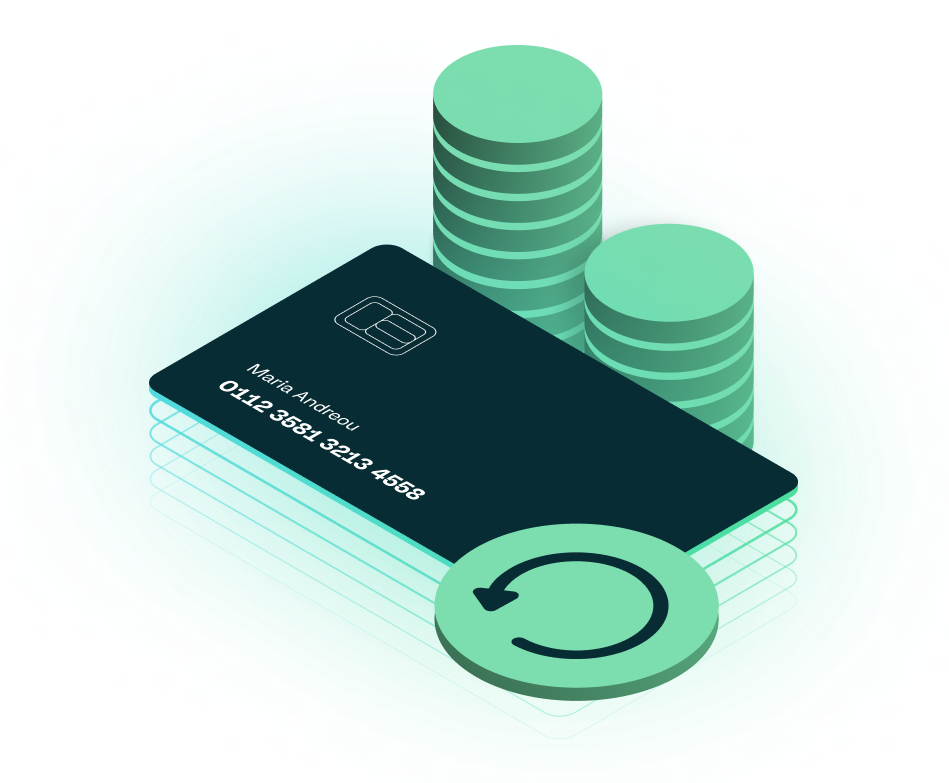The payments industry has undergone major changes due to technological advancements and evolving customer needs over the years. For instance, cash used to be the most popular way of payment, but over the last few decades, other methods have gained popularity among consumers, including the credit card.
The processing of a credit card payment involves labeling the payment as a specific transaction type, depending on its purpose. Merchants who accept credit card payments process different types of transactions on the daily. The most common one is a sale, which involves the customer making a credit card purchase and obtaining the product or service, and the business receiving the funds in exchange. But a credit card can do more than that.
In this article, we will talk about the many different credit card transaction types and what goal each of them serves.
The different types of credit card transactions

Credit cards are considered one of the most widely used online payment methods globally. Online merchants can easily expand their business activities almost everywhere in the world by accepting credit card payments from trusted card networks like Visa and Mastercard.
Accepting credit cards attracts a big majority of online shoppers who prefer this payment method, boosting revenue for online merchants and enhancing customer satisfaction. On the other hand, there is a high risk of fraud, disputes, and chargebacks.
Let’s see how credit card processing works to handle all sorts of transactions. Here are ten key types of credit card transaction types.
- Sale (aka payment or purchase)
- Pre-authorization
- Capture
- Void
- Refund
- Credit
- Adjustment
- Chargeback
- Verification
- Settlement
1. Sale (aka payment or purchase)
After a credit card’s information is captured at an online store’s payment page and then submitted to the payment processor, the transaction is sent to the issuing bank to be approved for the requested amount. Once the payment has been authorized by the bank, the merchant receives an approval code. This occurs in real-time, indicating that the purchase transaction is approved and completed and will now be sent for settlement.

When the payment has been fully processed successfully, the merchant will receive the transaction funds in their merchant account.
2. Pre-authorization (aka authorization-only or auth-only)
In a pre-authorization transaction, the merchant blocks the necessary amount for the purchase on the customer’s credit card in order to be settled at some point in the future. The holding period usually lasts 3 to 7 days and the blocked amount is not available for use by the customer for any other purchase. Businesses with a certain merchant category code (MCC) may have a long hold period of up to 30 days.
Authorization transactions that are not captured within the hold period will expire, and the merchant should then authorize and capture a new transaction to get the funds. Hotels and car rental businesses are two great examples of businesses that often use pre-authorization when making future reservations.
3. Capture
A capture transaction is when the merchant captures an already authorized transaction (identified by the original approval code generated in the pre-authorization phase) that has not been settled yet and submits it for clearing and settlement. It applies when online merchants initiate an ‘authorization transaction’ and reserve the transaction funds in the cardholder’s issuing bank prior to the product’s shipment or delivery.
Once the product has been shipped or delivered, the transaction will be captured and submitted for settlement.
4. Void
A void transaction is one that is canceled before it is settled. Merchants are allowed to void only those transactions that have been authorized or approved by the cardholder’s issuing bank but are not yet settled (open batch). A voided transaction not only prevents any funds from being exchanged between the buyer and seller accounts but also helps stop interchange fees from being billed to the merchant for said transaction, unlike in the case of a refund.
After a transaction is voided, it doesn’t show up on the customer’s credit card bill, and the temporary authorization hold is released without any deduction.
5. Refund
In a refund transaction, the merchant returns a settled transaction and submits the refund for processing. A refund is allowed for ‘sale’ and ‘capture’ transactions and represent either the full or a part of the transaction amount. It usually occurs when a customer wants to cancel a subscription or return a product.
Merchants can take certain measures if they want to reduce the number of refund transactions, but having a strict return or cancellation policy can foster negative sentiments in customers and cause their trust to waver.

6. Credit
A simple credit transaction involves the merchant returning a certain amount to the cardholder’s account. However, unlike a refund, a credit transaction is not linked to any specific transaction performed previously by the customer, and, thus, is not a reversal. It is an independent transfer that is usually initiated by the merchant as a gesture of goodwill, a reward, or compensation for a non-specific error or bad service.
An example is a loyalty program run by a seller that promises a certain reward amount on each order exceeding a particular amount in value. The reward will be given to the customer via a credit transaction.
7. Adjustment
An adjustment transaction is made in case an incorrect amount is charged to a customer’s credit card or a mistake in a previously completed transaction needs to be corrected. For instance, if a customer is accidentally charged twice for a purchase, an adjustment transaction will be carried out by the merchant. This not only keeps customers happy and loyal but also helps merchants maintain their financial records well.
8. Chargeback
Initiated by a customer, a chargeback usually happens when a customer is either not happy with the product or service they have received or hasn’t received the promised good or service at all. Sometimes, it also happens when a merchant refuses to issue a refund, due to whatever reason, forcing the customer to go behind their back to their issuing bank, asking them directly to cancel the purchase. As a result, the issuing bank investigates the dispute claim raised by the customer and reverses the charge if the claim is found to be justified.
Chargebacks are very dangerous for merchants because getting hit with too many chargebacks reflects badly on their payment processing track record and marks them as high-risk. In addition to that, merchants are forced to pay extra fees for each chargeback, adding to the damage they face in the form of lost sales and increased operational costs.
9. Verification
A verification transaction type is used to verify the credit card number, expiration date, and card security code for a card-not-present transaction. During verification, the merchant might place a hold of a nominal amount, e.g. €0 or €1, on the cardholder’s account. The amount is usually not charged but reversed. This type of transaction is done to ‘tokenize’ a credit card for future use.
Verification transactions are mostly common for subscription-based purchases where the customer agrees to recurring payments and allows the merchant to bill them automatically after each payment cycle.
10. Settlement
The last step in credit card processing, a settlement transaction happens when all other phases of the credit card processing cycle are complete. Settlement is the actual transfer of the funds from the cardholder’s bank to the merchant’s bank.
Settlement transactions usually happen in batches to save processing cost and time. For example, depending on the total number or volume of transactions, a merchant might want to send each batch of completed transactions to their bank (the acquiring bank) at the end of a workday (daily) or work week (weekly).
Secure credit card transactions with payabl.
As a payment provider, payabl. can guide online merchants like you through the different credit card transaction types and payment methods. By partnering with us, you can obtain your own merchant processing account with minimal wait time.
You can easily incorporate our proprietary payment gateway into your online store for secure credit card transaction processing through a simple integration process. Get in touch for more information!
